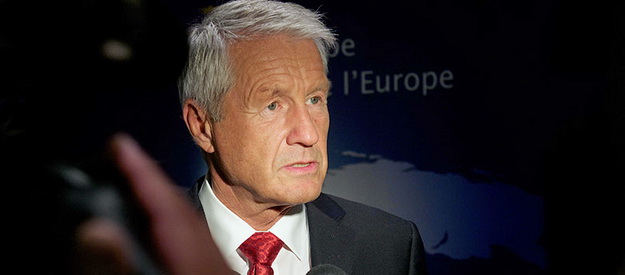“We express our gratitude to you for organizing a special human rights monitoring mission in the temporarily occupied Crimea… At the same time, a good number of issues remained undescribed in the report of the special mission headed by Ambassador Gérard Stoudmann.
The conclusion in the report of the special mission that “cases of repression mostly target individual opponents” contradicts the assessment of international and local human rights organizations.”
A letter of Ukrainian human rights organizations to Secretary General of Council of Europe Thorbjørn Jagland, signed by Head of the Center of Civil Liberties Oleksandra Matviychuk, starts with these words.
And this is not a small conflict.
According to the Ukrainian outlet Yevropeiska Pravda, there is a serious confrontation between Ukraine and the Secretary General of the Council of Europe regarding Crimea, which not only does not diminish with time, but becomes more pronounced.
Its cornerstone is an April report of Gérard Stoudmann about the situation in Crimea. Mr. Jagland is satisfied with the document, tries to give it official status, and – according to sources of Yevropeiska Pravda – is lobbying another visit of Stoudmann to Crimea.
But Kyiv stresses that the report contains fundamental problems. The Swiss diplomat has not mentioned that Crimea and Sevatopol have been illegally annexed in the enormous document; the self-proclaimed Crimean management are called just “the authorities.” Also, he did not notice the repressions against the Crimean Tatars.
Official Kyiv is refraining from loud statements at the moment, limiting itself to a non-public confrontation in Stasbourg. This is why it’s important to understand which “mistakes” Mr. Jagland’s special envoy made in Crimea, and whether he can be considered an independent observer. Euromaidan Press publishes an abridged version of the letter to the Secretary General. For those that are interested, we are attaching also its full text.
Proposals to the report of the special mission for human rights monitoring in the temporarily occupied Crimea, organized by the Secretary General of the Council of Europe, on 25-31 January 2016
1. Crimean Tatars and other minorities
As you may know, after the visit of the special mission the occupation Court recognized the Mejlis of Crimean Tatar people to be an extremist organization and banned its activities. The report clearly states though that “such a decision would be an evidence of a new wave of repression against the Crimean Tatar community in general.”
With this in mind, please pay particular attention to the report’s statement that “cases of repression are rather aimed against individual opponents, than represent a collective policy of repressions against the Crimean Tatars as an ethnic group.”
The fact that some members of the Mejlis (who agreed to collaborate with the occupation regime) are occupying some ruling positions, and are not in prison or exile as other members of the Mejlis (who did not agree to collaborate), does not mean that mass repressions against the Crimean Tatars are not the case.
In this context, the unlawful ban of Mejlis in April 2016 lies entirely within the policy of systematic repression of the Crimean Tatar people conducted by the occupation authorities.
We recommend interviewing the victims of the illegal massive searches in the Crimean Tatar settlements and law enforcement raids to the Tatar mosques, accompanied by numerous detentions.
One can take as an example massive searches that took place in February 2016 in Yalta, Alushta, Bakhchisarai, the villages of Krasnokamianka, Kholmivka, Vìktorivka. The FSB then detained more than ten Crimean Tatars; four of them, namely Emir-Usein Kuku, Muslim Aliev, Vadym Siruk, Enver Bekirov, are still in custody. Another example is detention of several dozen Muslims in mosques after Jumu’ah (Friday prayer), which occurred in May 2016 in Molodizhne of Simferopol Rayon.
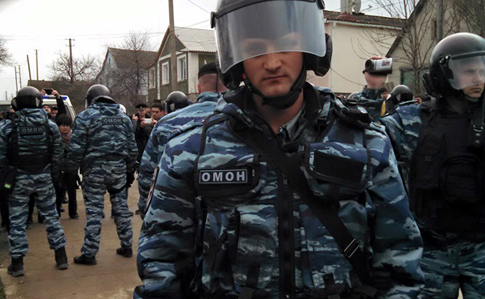
According to our information only, the number the Crimean Tatars persecuted for political motives and currently held in detention is at least 16 persons. Given this fact we believe that the Advisory Committee of the Framework Convention for the Protection of the Rights of National Minorities should get involved in the monitoring process.
2. Law enforcement authorities
As rightfully noted in the report, the majority of the participants of the meetings were telling that it was worthless to try to complain about bullying, threats of abduction, unlawful searches, disproportionate use of force by law enforcement officials. Please take into account that this directly demonstrates that there are no effective means of protection against arbitrary actions of occupation police on the territory of the occupied Crimea.
The report contains a statement of occupation authorities that they “conduct independent, tireless and transparent investigations publicly presenting current developments and findings” regarding 21 missing persons, 5 of whom were found dead.
Please be advised of the existing practice, which proves the inefficiency in investigating politically motivated crimes. We request you to kindly pay attention to the following illustrative cases. The criminal proceedings regarding the brutal murder of a single participant of the one-man picket Reshat Ametov was suspended in the fall of 2014 and resumed only a year after being started.
The very moment of abduction of Reshat Ametov by the “Crimean self-defense” was recorded on video, yet there are no suspects in the case materials so far.
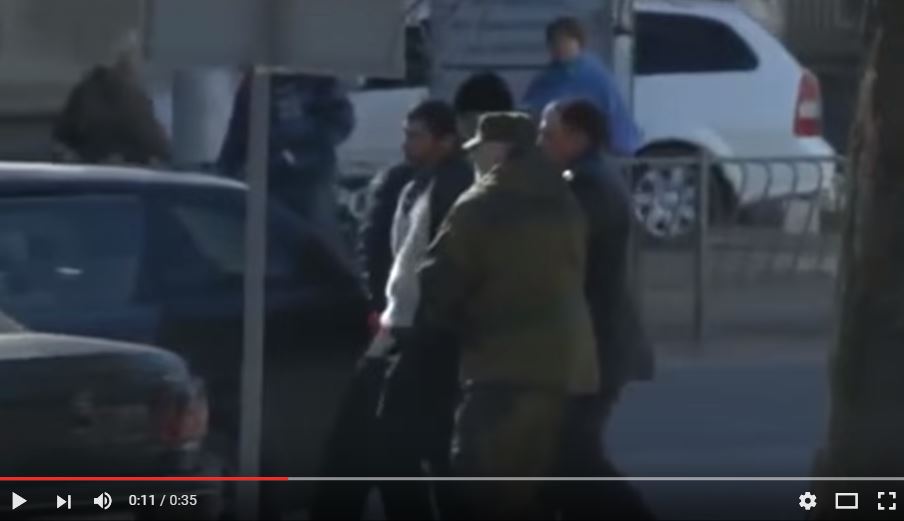
The investigation of the abduction of a public activist Andrei Shchekun was “frozen” in a similar way. He was delivered by the “Crimean self-defense” to the police station, and further transferred by the police to other representatives of the “Crimean self-defense.” Andriy Shchekun spent 11 days in captivity in spring of 2014; along with other illegally detained persons he was brutally tortured (beatings, shot limbs, use of electric shocks, etc.)
We recommend to examine the situation regarding introduction of repressive model of police operation which is typical of the Russian Federation on the territory of the occupied Crimea. We also recommend to provide official assessment of the absolute impunity of law enforcement officers for the human rights violations committed by them.
3. “Self-defense forces”
The report tells that a paramilitary group called “Crimean self-defense” was dissolved and turned into “two separate security units.”
It is noted in the report that the special mission was not able to confirm “their participation in the abductions of people and other violent acts.” For verification of these facts we recommend speaking with the community activists who are now in the Ukrainian Mainland of Ukraine and meeting with relatives of the missing people.
For example, with the relatives of Islyam Dzhepparov and Dzhevdet Islyamov, who witnessed him being pulled into a van by representatives of the “Crimean self-defense” on 27 September 2014. We recommend gathering evidence regarding involvement of the “Crimean self-defense” in violent disappearances, acts of torture, seizure of religious buildings, beatings of journalists, crackdowns on peaceful assemblies and other serious human rights violations.
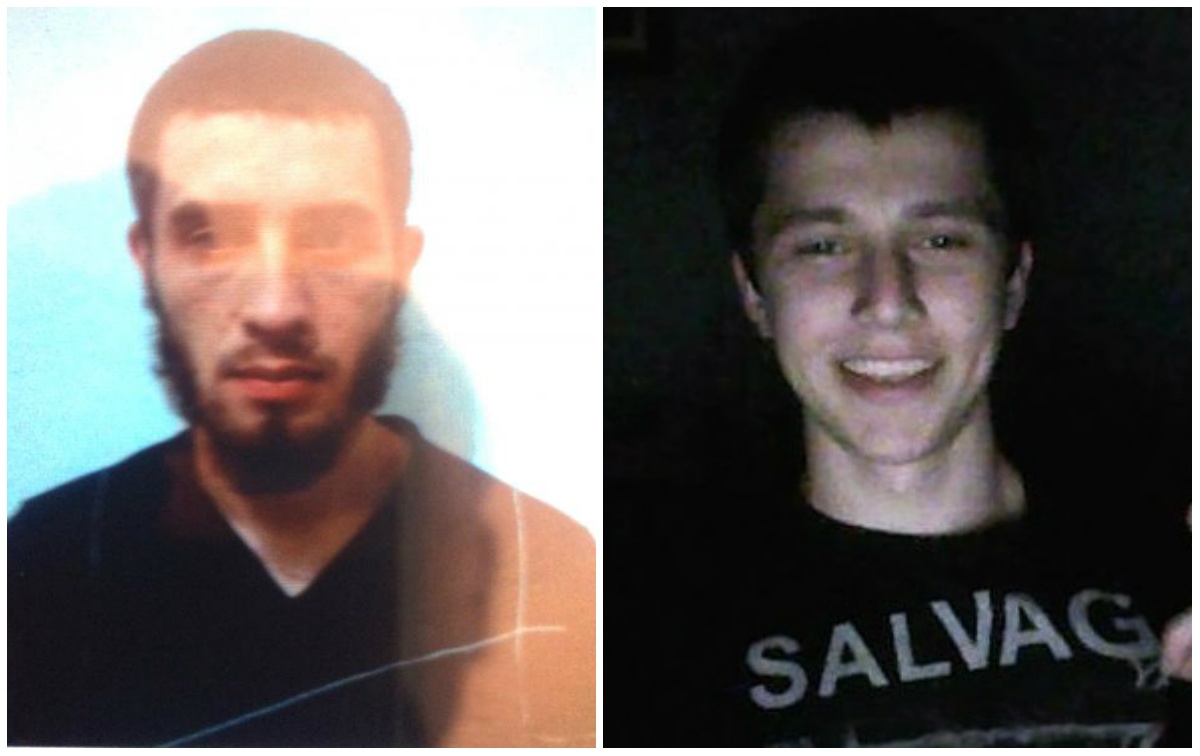
None of its representatives have been made accountable for the committed crimes.
4. Judiciary
We realize that due to the short period of time, the special mission “did not have enough opportunities to conduct a comprehensive and detailed assessment of the current state of the judiciary in the Crimea.”
Therefore, we recommend examining cases of numerous violations of the right to a fair trial referred to in the reports of international intergovernmental organizations and human rights lawyer. We would like to draw your attention to the illegal withdrawal of Emil Kurbedìnov, a defense lawyer who defended persons accused in being members of a terrorist organization, the court’s refusal to to consider claims regarding torture used by police against detainees, to limitation of public access to Court.
The report mentions a statement of the self-proclaimed General Prosecutor on decriminalization of 118 offences. Thus the self-proclaimed General Prosecutor (Nataliya Poklonskaa) is trying to make a false impression about humanization of the criminal law
Legislative amendments adopted after occupation in the field of information dissemination, combating extremism, rallies and mass activities introduced new crime elements, increased the existing criminal liability, extended the repressive powers of state authorities and constituted grounds for suppressing any view contrary to that of the ruling authorities and any activity unauthorized by the occupation authorities.
Yuriy Ilchenko has been detained for more than two years for a posting on his social network profile criticism of the annexation of the Crimea.
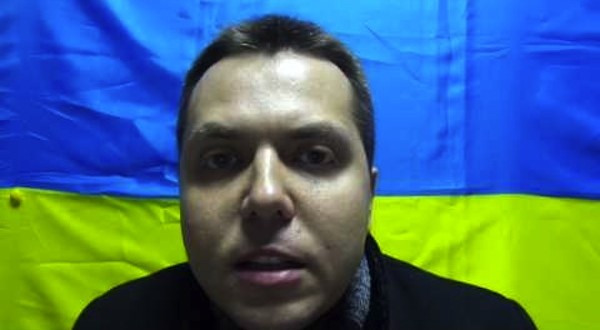
5. Penitentiary institutions
The situation with the local penitentiary institutions is quite alarming.
It is not incidental that the Parliamentary Assembly the The European Committee for the Prevention of Torture and Inhuman or Degrading Treatment or Punishment to establish a special monitoring mission that would check the confinement conditions of the Ukrainian prisoners detained for political motives in the Russian Federation and Crimea.
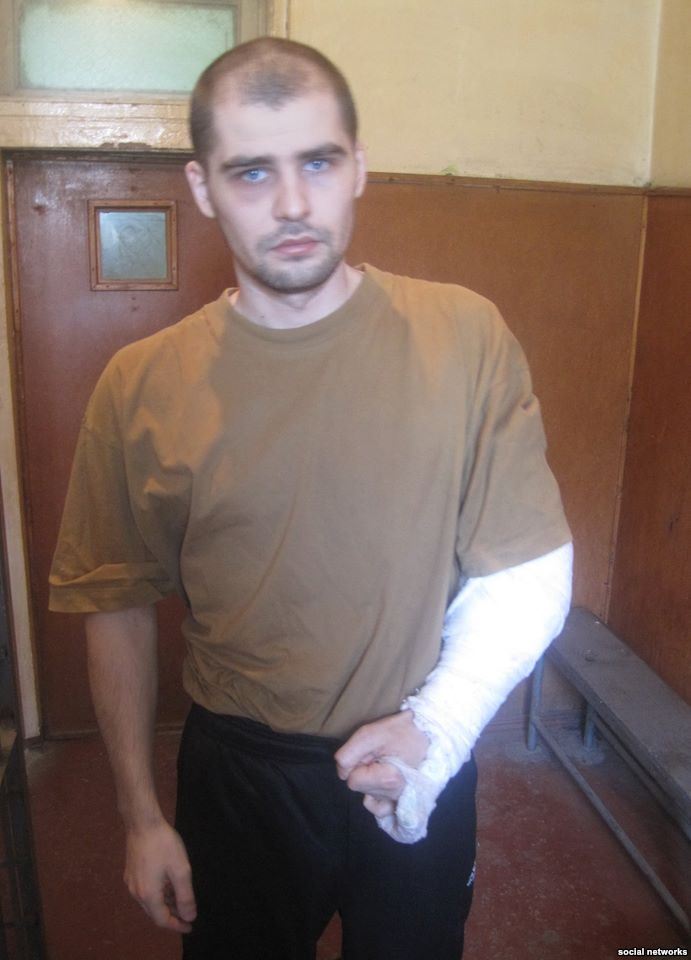
For example, the case of Crimean Tatar Enver Krosh, who was subjected to torture by electric shocks for refusing to cooperate with the FSB (Federal Security Service), or the refusal to provide medical aid to prisoner Oleksandr Kostenko, whose broken arm was “shrinking” after being tortured by the police.
Attention should also be paid to the illegal transfer of prisoners from the territory of the occupied Crimea to places of imprisonment on the territory of the Russian Federation to serve sentences. It is worth noting that this practice grossly violates the international humanitarian law.
6. Freedom of religion
The report states that re-registration of religious communities “has not caused any significant difficulties” and explains a drastic reduction in the number of registered organizations this way: “as reported, most of them had not been active.” Also, the report contains the following statement “it is reported that many religious organizations that stopped their activities were Muslim organizations which were probably funded from abroad.”
Following a separate meeting with Archbishop Kliment of the Ukrainian Orthodox Church of Kyiv Patriarchate, the report mentions “difficulties regarding full use of and access to the administrative buildings in Simferopol”. We would like to inform you about the nature of these difficulties. Ukrainian Orthodox Church of Kyiv Patriarchate periodically publishes information about kidnappings and beatings of clerics, illegal searches and interrogations, preventive conversations with its parishioners, forcible seizures of churches by law enforcement agencies and representatives of the “Crimean self-defense”.
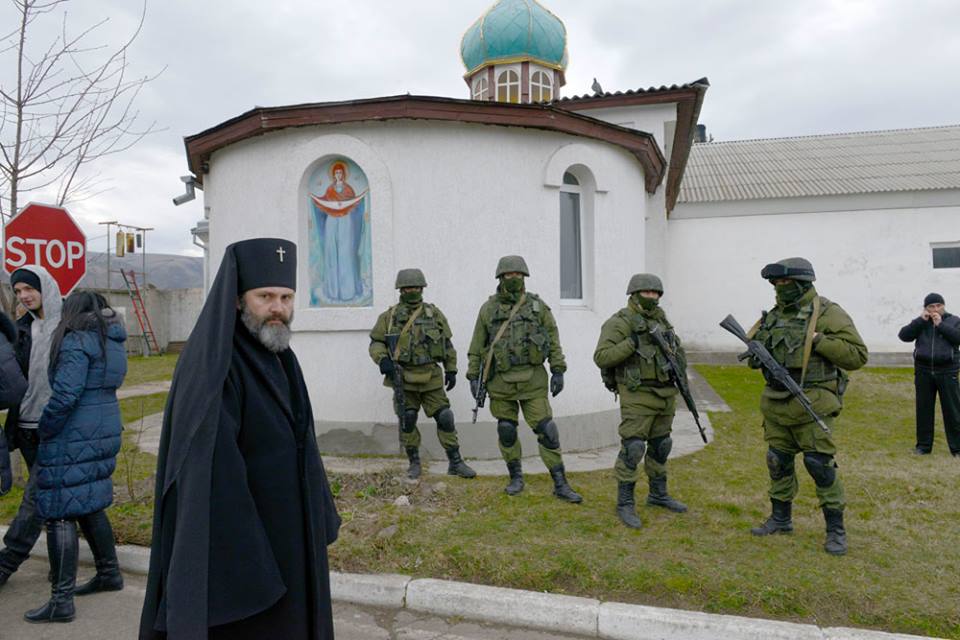
The website of the General Prosecutor’s Office of Ukraine contains information on an illegal search at the home of the mother of the priest of Svyato-Pokrovskiy Temple (Ukrainian Orthodox Church of Kiev Patriarchate) which took place on 6 December 2015. During the search, his personal records were seized; and in January of the following year, two unknown men in civilian clothes detained and interrogated his mother. Currently the Priest has been put on the “wanted list” by the occupation authorities for alleged extremism.
It is appropriately noted in the report that these issues “should be considered also in the light of the requirements provided for in Article 9 of the European Convention on Human Rights”. We recommend giving an official assessment regarding proportionality of the intervention of the occupation authorities in the freedom of thought, conscience and religion in accordance with the aforementioned article of the Convention.
7. Freedom of expression / the mass media
The report mentions restrictive impact of the Russian legislation, which resulted in “reduction of the mass media diversity.” We recommend to separately examining the situation with the introduction of censorship, intimidation of journalists and threats by law enforcement agencies, searches and seizures of the property belonging to journalists and bloggers, arrests of the media representatives and other forms of obstruction in journalist professional activity.
We recommend investigating the details of “other reasons” mentioned in the Ambassador’s report as those causing the closure of newspapers. As an example, one can cite the words of the editor of the last Ukrainian newspaper “Krymska Svitlytsia” about the forced closure of the media due to the “inability to guarantee safety to journalists”: “We have an information war here. Anything Ukrainian is forbidden. While there are some Crimean Tatar channels, newspapers, there is nothing Ukrainian which would be legal. Even libraries are throwing our historical books away. Here any person can be charged for anything under Russian law, even for the fact that we do not recognize the Crimea to be Russian in our newspaper. We cannot get our salary. Only by a miracle someone might bring it from Kyiv. We are working via our home Internet connections”.
The occupation authorities in Crimea have been also consistently destroying the only independent Crimean Tatar channel – ATR. Its editorial team was accused of extremism because channel “strongly broadcasts the opinion about possible reprisals, and promotes the formation of anti-Russian public opinion.” Its staff faced a series of searches, reporters were forbidden to access the Crimean Tatar cultural institutions. The channel’s broadcasting license has not been extended after four attempts to pass the re-registration in accordance with the Russian legislation.
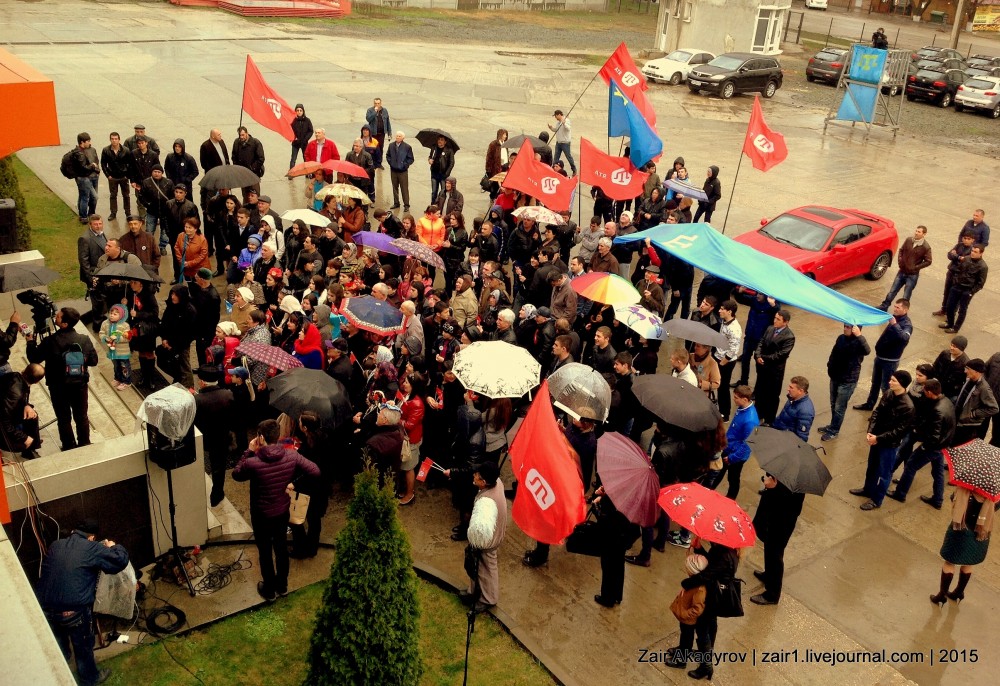
The report stated that “the sense of frustration is probably one of the main reasons that led to the creation of Millet TV – a new Crimean Tatar public channel.” I would like to inform you that channel Millet TV was launched exclusively in order to compete with the ATR, which continues to broadcast from the mainland territory of Ukraine. Editorial policy of Millet TV is under full control of the occupying authorities, which defines the content and language of the channel. ATR’s signal is simultaneously being blocked in the Internet on the territory of Crimea.
We recommend providing an official assessment of the situation regarding pressure inflicted by the occupation authorities on mass media, numerous violations of freedom of expression, as well as effectiveness in investigating cases of obstruction in journalists’ professional activity.
9. Freedom of Assembly and Association
The report appropriately noted the importance of compliance with Article 11 of the European Convention on Human Rights. Therefore, we recommend investigating and providing an official assessment of the facts of numerous violations of the freedom to peaceful assembly – disproportionate restrictions on peaceful meetings, forced dispersal and beatings of their participants, illegal arrests of protesters and fake administrative and criminal charges pressed against them, etc.
We recommend interviewing participants of peaceful assemblies on the legitimacy of the intervention of the law enforcement authorities and the “Crimean self-defense”. In general the current situation on the territory of the peninsula is that assemblies of even cultural character -participants a floral tribute to the famous Ukrainian poet Taras Shevchenko on his birthday anniversary in March 2015 were arrested and subjected to administrative punishment.
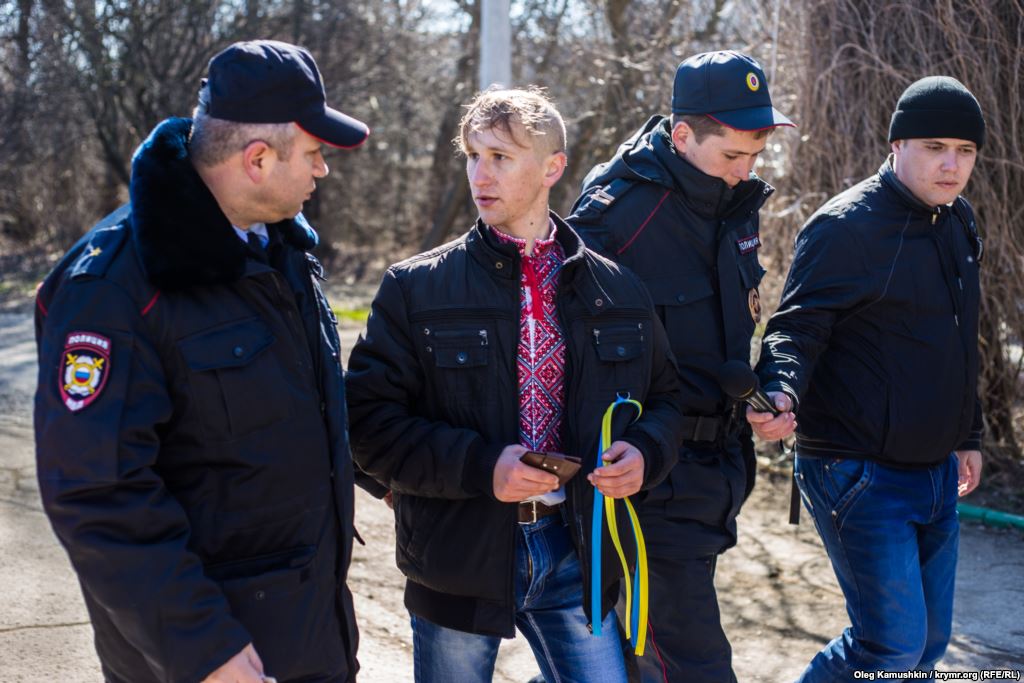
At the same time, peaceful assemblies initiated by the occupation authorities receive all-round support. Vladimir Putin’s favorites – “Night wolves” bikers held their assembly in the center of Simferopol in April 2016.
10. Education
As seen from the text of the report, the special mission during its visit focused on the language of teaching at schools. We recommend verifying the absence of “obvious signs of deterioration of the situation” in the field of school education conducted in the Crimean Tatar language. Also, check the accuracy of the assertions made by occupation authorities that a significant decrease in the number of schools and classes conducting teaching in Ukrainian language is the result of a free choice of parents, “who now prefer to have their children taught in Russian”.
To do this, we recommend that you meet with the parents of the one and only Ukrainian Gymnasium in Simferopol, which is shut down despite their desperate resistance and public protest. Separately, it is worth talking to the Director of this gymnasium Nataliya Rudenko on the issue of teaching in Ukrainian language in Crimean schools. As a result of pressure, she was forced to leave the territory of Crimea and presently is residing in Kyiv.
Conclusion
The situation with human rights and freedoms in the occupied Crimea in general is rapidly getting worse. Therefore, the Council of Europe invokes quite high expectations.
We confirm once again our commitment to provide comprehensive support to the activity of the Council of Europe regarding monitoring the situation with human rights and basic freedoms in the occupied Crimea, in particular, the necessary documents and contacts.
We see it extremely important to ensure that human rights conventional mechanisms of the Council of Europe and the Council of Europe Commissioner for Human Rights participate in monitoring Crimea as a part of Ukraine.
With deep respect and hope to be heard,
Chairperson of the Board of the Center for Civil Liberties
Co-ordinator of Euromaidan SOS Initiative
Oleksandra Matviychuk
Full text of the open letter to Secretary General of Council of Europe Thorbjørn Jagland.




